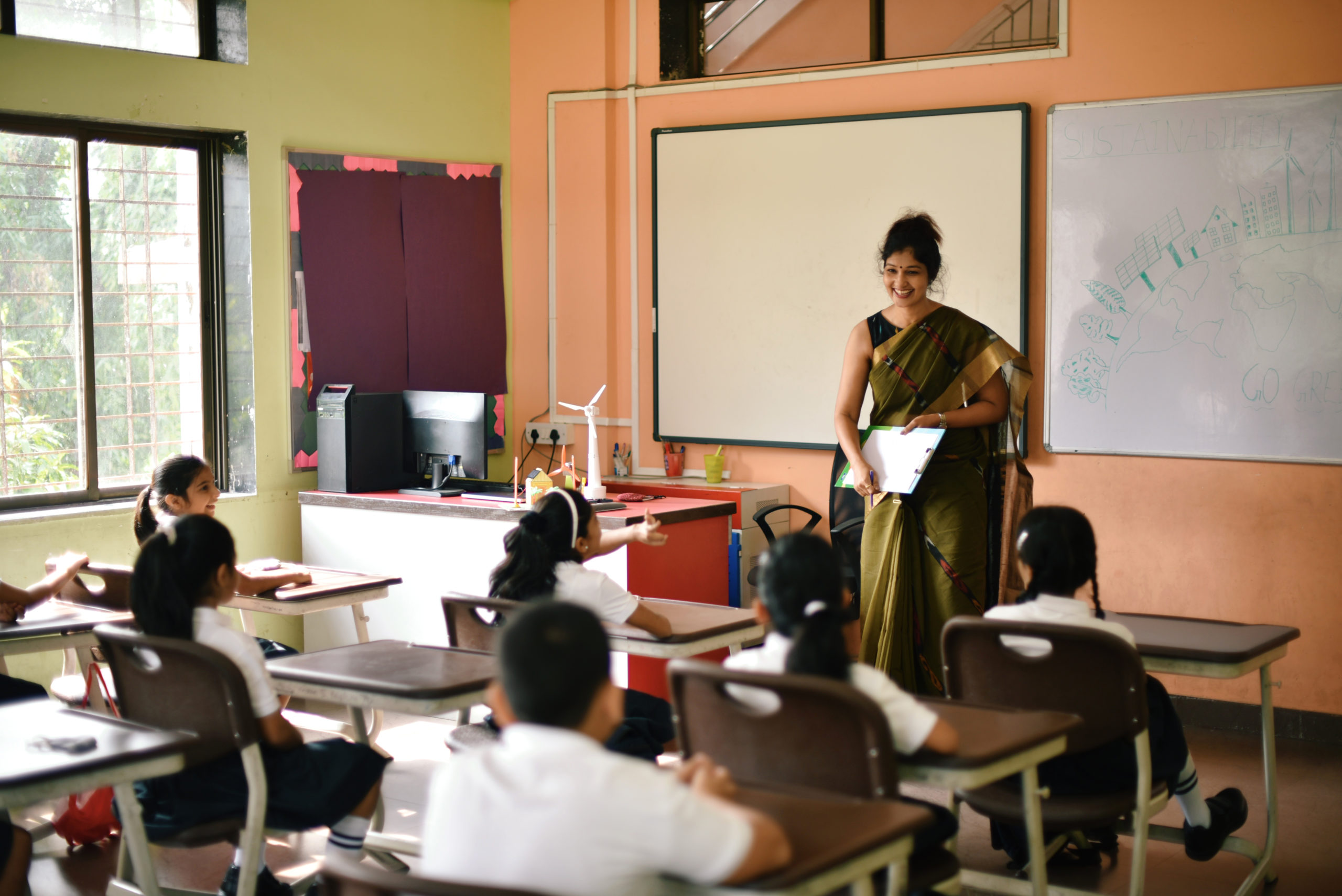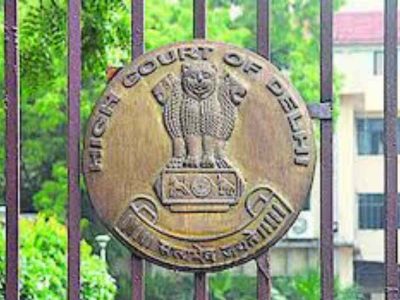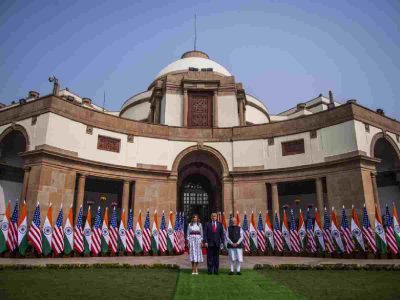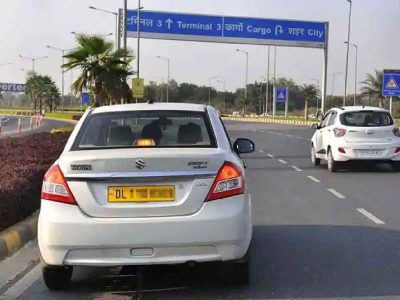The baffling lack of application of mind to the reopening of Delhi’s schools, both public and private, has riled the entire city. While the AAP government project the success of Delhi schools in other states, there is dismay in the capital about the neglect of this sector on the pretext of pollution and Covid-19
By the end of January, when the third wave of the pandemic was in clear decline, anxiety among parents and teachers about reopening of schools had reached a breaking point. In December, private schools had opened for barely a week when they were closed again on the grounds that the air quality in the city had reached was too poor for children to venture out. It sounded more like an excuse than a logical reason, as most children go out to play anyway, in all weather conditions, and also go to malls and shopping centres with their parents. There are also reports that air quality indoors is no better than that outdoors.
Soon after that, Delhi’s citizens watched TV images of their Chief Minister Arvind Kejriwal making bombastic statements all over the country, at least in the states where the Aam Admi Party is contesting Assembly elections: Uttarakhand, Uttar Pradesh, Goa and Punjab. It seemed as if he and the top leadership of the party was running away from its responsibilities in the national capital. The weekend lockdowns and the odd-even closure rule on top of night curfew also gave a signal that AAP did not care much about Delhi, already in its pocket, as it went in search of greener pastures in order to earn the tag of a national party.
After 20 months of school closure, it was expected that Delhi open its schools and allow children to get back to normal activity. If Covid had spread among the students, the schools could have been closed again.
The situation became more piquant as other states started opening their schools. The Uttar Pradesh government had closed all educational institutions till 16 January in view of the rising cases of Covid. This date was postponed to 23 January. Now schools are likely to open by 7 February for the Secondary (10th) and Seniors Senior Secondary (12th). Reopening date for Classes 6 to 9 and 1 to 5 was not yet announced by the time of going to press.
In Madhya Pradesh, the state government had on 14 January ordered the closure of schools and hostels for Classes 1 to 12 till 31 January in the wake of a surge in Covid-19 cases at that time. In Uttarakhand, students of 10 to 12 went back to school on 31 January.
The Haryana state government reopened all government and private schools for Classes 10 to 12 from 1 February. Online teaching will continue, and schools and colleges have been directed to focus on the preparation for the upcoming examination.
Similarly, the Rajasthan state government will open schools for Classes 10 to 12 from 1 February 1 and for classes 6 to 9 from 10 February. However, students have the option to attend online classes if their parents don’t allow them.
In Delhi, however, on 22 January, when anxiety about reopening of schools peaked, Delhi government announced it will conduct a survey to understand the impact of Covid on children’s mental health and academic progress. In the eyes of most citizens, this is a stupendous waste of time and resources. When the media is full of reports about the restlessness among parents, students, teachers and even school managements about the prolonged absence of normal activity, Deputy CM Manish Sisodia has time and energy to conduct a survey.
What about the threat of infection? On 2 February, Delhi recorded only 2,779 new Covid-19 infections. Positivity rate of national capital was at 6.2 per cent and 5,502 patients were discharged. At a time when all business activity has resumed (except gyms), it seems untenable to keep schools closed any longer. There is even an air quality report that January this year was not as bad as previous years in the national capital. So the pollution excuse cannot possibly be trotted out at the end of winter.
Recently organisations like the Action Committee of Unaided and Private schools and National Progressive Schools’ Conference representing private schools in Delhi have written to Lieutenant Governor Anil Baijal urging him to immediately reopen schools.
“It is our humble request to you to kindly reopen schools as our students at all levels have been facing major learning losses for around two years now. We assure you of the safe and smooth reopening of schools. Many major metro cities in India and abroad have reopened schools. We believe it is time when Delhi also takes a strong decision to reopen physical learning spaces,” says the letter by Action Committee of Unaided and Private Schools.
To know how this long lockdown and online education has affected schools, students and parents, Patriot spoke to educators and parents. One of the biggest concerns of teachers and parents is that this lockdown has affected the learning capacity of the students.
Priya Vaidya, Principal at Ramjas International School, RK Puram explains how online education has changed the scenario in the last two years. “Yes, there is a loss in learning among students because of the pandemic,” she says. “We cannot compare 2.5 hours online class with a six-hour physical class.”
Social interaction among students has decreased and this has directly impacted their life and social skills, she points out. “It has become harder for students from the economically weaker section; many students from the needful background are witnessing a lot of challenges. First, they are not able to afford smart devices for online education but, our school has provided devices to them but, another big challenge they face is lack of environment in their homes to study. Many students from the EWS category are living in tiny spaces, which makes it difficult for them to study in a peaceful environment”.
Asked how students of Nursery and Kindergarten are affected, she says, “It is difficult to teach small students online. Engagement is important while you are teaching a nursery kid and online education does not provide you with the engagement of that level you get in physical classes. Activity plays an important role in inculcating new things in a young mind but, again online education makes it hard for students as well as for the teacher”.
While discussing, how online mode has changed teaching and how it will impact the future of education, she says, “Teachers have done a really hard job to keep the flame of education burning in students. There is also a positive side to the pandemic. Teachers have learned how to teach students virtually, now they have become skilled in making PPT, worksheets and educational videos. This skill of teaching online has increased the reach of teachers and in future, this skill will help them after the post-pandemic period”.
Educators are now planning to bring the train back on track. Many teachers are focusing on revision methods to bring the learning level up in the students. “We are planning to make revision necessary for the students. I have asked teachers to revisit the concepts, to make a strong base in students. Students are like clay and we will try to mould them, to make them a complete student”, she added.
Asked what parents feel about the opening of schools, she says, “Six out of ten parents want that schools should be reopened, because they know how this long break has made their wards lethargic and this is affecting their learning skills. We are following all coronavirus measures in the school, they are not only their parent’s kid, but they are also our kids and we know safety is important in this time”.
Suman, who teaches economics at OPG world school, Dwarka, while discussing the change in behaviour of students says, “Online classes are a good option for students studying in higher classes but in case of primary school students it is not a good option. Usually, school-going children are immature and are taking undue advantage of online classes. Many times, I have witnessed that students become passive and do not respond in the online class.”
She adds, “The online mode has made teaching difficult and this has also increased pressure on us. Virtual mode of teaching is not only harmful to us but, it is also harmful to the students. When schools were open, they use to have a PT class and library period but, after Covid physical activity and reading habits have vanished for most of the children. In this time, it is important to reopen schools because this pandemic has destroyed education in whole one generation. But now we are not late, reopening schools can again bring learning skills up in the students”.
Deep Jaimam, a counsellor with over 30 years’ experience says “Initially the idea to close down schools was a good one as the health of the students is paramount, but now since the pandemic has receded, I support the opening of schools because now this closure of schools is more damaging for the students. Academic growth is just one part of a child’s life. Other parts as physio-social growth is also a very important part. And that part is missing now”.
How this problem is impacting parent-child relationships, she says, “The parents are under stress because of their children, as they observe their children 24×7 at home. The child is under stress because he/she is being constantly observed, they don’t really know what’s happening with their lives. If you take the mobile away for a while from your child, the child gets hyperactive as if a body part of his is being taken away. The children are now living in a reality in a ‘virtual world’”.
“The behavioural changes that have come up in children is enormous, earlier the children used to spend their energy while in school, doing various kind of activities at school. There were different outlets to spend that energy but now there is just no outlet to utilise that energy. There is no set routine for the students to follow” she adds.
All of which goes to show that society is ready for the reopening of schools. But is the government ready?
Now all eyes are on the meeting of the Delhi Disaster Management Authority on 7 February, when good news might finally come for school and college students. The sight of children heading for school in their uniforms early in the morning will be a sight for sore eyes, one that has evaded the city for almost two years now.
For more stories that cover the ongoings of Delhi NCR, follow us on:
Instagram: https://www.instagram.com/thepatriot_in/
Twitter: https://twitter.com/thePatriot_in
Facebook: https://www.facebook.com/Thepatriotnewsindia





